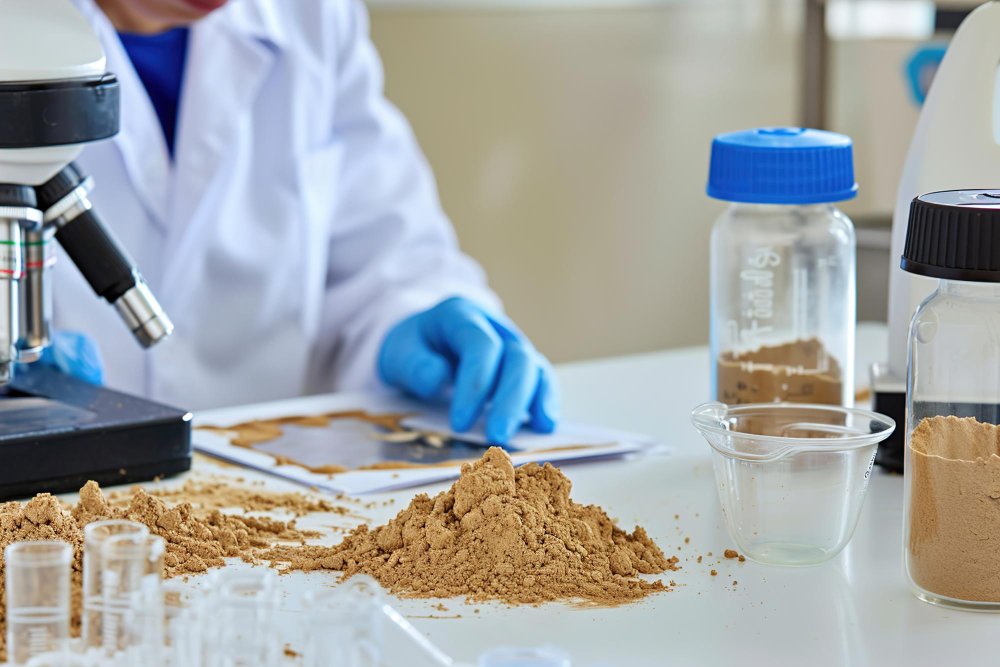Do silver labs have health issues
Stay Fit Pune – Do silver labs have health issues. Did you know Silver Labradors are often seen as rare and sought-after? However, they have caused a lot of debate among dog lovers and breeders. The American Kennel Club (AKC) only recognizes their unique coat color as a shade of chocolate. This might mean they have their own silver lab health concerns.
Thinking about getting a silver labrador retriever? It’s key to know about the health problems they might face. Issues like hidden traits, cancer, eye problems, and shorter lifespans are concerns. We’ll explore if silver labs really have health issues and what owners should know before deciding.
Understanding Silver Labradors
Silver Labradors are a special type of Labrador Retriever. They have caught the eye of many dog lovers. The silver lab breed information shows their unique traits and where they come from. This makes them stand out in the Labrador world.
What Makes Silver Labs Unique?
The unique characteristics of silver labs include their coat color. This color comes from a genetic mutation called the D gene. It makes their fur a beautiful silver shade.
Unlike the usual colors like black, yellow, and chocolate, silver labs are often seen as chocolate. This has caused a lot of debate. Their rarity means they can cost over $1000, showing how special they are.
History and Origin of Silver Labs
The story of silver labrador retrievers started in the mid-20th century. Some say they came from mixing with Weimaraners. This has led to questions about their true breed.
Despite the debate, silver labs are known for being friendly and social. Knowing their history helps us understand this special breed better.
Common Health Problems in Labrador Retrievers
Labrador Retrievers are loved for their friendly nature and hard work. Yet, they face many health challenges. Knowing about common health issues in labs is key for owners to keep their pets healthy. Knowing about genetic risks and breeding practices helps manage your dog’s health.
Overview of Labrador Health Issues
Labradors often deal with hip and elbow dysplasia, which hurts their mobility. Obesity is also common, caused by their big appetites and sometimes not enough exercise. Keeping them active and on a balanced diet helps prevent obesity problems.
They can also get skin, dental, and eye issues. These problems can lower their quality of life.
Specific Conditions Affecting Silver Labs
Silver Labradors face similar health problems as other Labs but have unique concerns. Color Dilution Alopecia (CDA) is a big issue for them. It causes flaky, itchy skin and hair loss, making them uncomfortable.
Research shows silver Labs might get allergies and immune problems more often. Knowing these risks helps owners watch for signs and get vet care early.
Do Silver Labs Have Health Issues?
Thinking about silver labs and their health is important. They face special silver lab health risks because of their unique genes. One big issue is color dilution alopecia (CDA), which can cause hair loss and skin problems. This usually starts between 6 months and 3 years old.
Studies show silver labs might get more health problems because of their genes. This includes brain issues, thyroid problems, and joint problems. Because of their small gene pool, these risks are even higher. It’s also common for breeders to focus more on the dog’s color than its health or behavior.
It’s key to take your silver lab to the vet regularly. Some breeders might not check for health issues like hip dysplasia or eye problems. By watching your dog’s health and choosing a good breeder, you can make their life better. This helps deal with the health challenges they face because of their genes.
Hereditary Diseases in Silver Labs
Knowing about silver lab hereditary diseases is key for anyone thinking of getting one. Silver Labradors face health issues similar to other Labs but with some unique genetic disorders. Being informed about these can help your new puppy live a happy life.
Common Genetic Disorders
Silver Labs can get hip dysplasia, elbow dysplasia, and color dilution alopecia. These diseases can really affect your dog’s life. Hip and elbow dysplasia cause joint pain and mobility problems as they get older.
Color dilution alopecia leads to hair loss and skin infections, big worries for silver Labs. Knowing about these can help you prevent and care for your pet’s health.
Impact of Breeding Practices on Genetic Health
Breeding practices are very important for silver lab health. Good breeders use safe methods to lower the risk of inherited diseases. They do full panel DNA testing to find genes linked to diseases.
Using services like Embark helps pick a puppy with less genetic risk. Knowing about breeding can lead you to healthier puppies. This benefits both the dog and its family.
Lifespan and Health Considerations
Many factors affect the health and life span of Silver Labradors. Knowing these can help you make your silver lab live longer and happier.
Average Lifespan of Silver Labs
Silver labs usually live between 10 to 14 years. This is similar to regular Labrador Retrievers because of their shared genes and health issues. This knowledge helps you prepare and give your best care at every stage of their life.
Factors Influencing Lifespan and Health
Genetics, nutrition, and exercise are key to a silver lab’s health. A balanced diet and regular exercise boost their immune system and keep them fit. This also keeps their mind sharp.
Veterinary care, preventative treatments, and social interactions also matter. Regular vet visits can spot health problems early. Socializing with others keeps your dog happy and mentally active. By focusing on these areas, you can greatly improve your silver lab’s life and health.
Caring for Silver Labs
Caring for silver labs means paying attention to their nutrition, exercise, and grooming. These areas are key to their health and happiness.
Nutrition and Dietary Needs
Silver labs need a diet rich in protein. They require 1650 to 2400 calories daily, based on their activity and age. A balanced diet supports their growth and energy.
Exercise Requirements
Silver labs need lots of exercise. They should get at least 60 minutes of active play every day. Running, swimming, and agility training keep them fit and prevent boredom.
Grooming Needs
Grooming is important for silver labs. They shed all year, so brushing them twice a week is essential. This keeps their coat looking good and prevents mats. Also, don’t forget to check their ears, trim their nails, and brush their teeth regularly. This keeps them healthy and happy.
Choosing a Reputable Silver Lab Breeder
Looking for a Silver Labrador? Choosing a good breeder is key. Good breeders focus on health testing for their dogs. This means they check their dogs for health issues before breeding.
What to Look for in a Breeder
First, look for breeders who are open about their practices. They should show health clearances for their dogs and parents. Ask about their breeding history and the health of their dogs.
Good breeders usually have fewer dogs to breed. They might even keep their dogs’ identities private. This is to protect their breeding methods.
Health Testing and Transparency
Health testing is crucial for responsible breeding. Breeders should talk about health clearances and show proof. This shows they care about their dogs’ health.
Labradors have a history of breeding issues. Knowing this is important. Even if breeders are secretive, their focus on health should be clear. Choosing a reputable breeder means getting a healthy pet.
Conclusion: Do silver labs have health issues
Do silver labs have health issues? Yes, they do face specific health challenges. But, with the right knowledge and care, you can manage these risks. This overview shows how important it is to know about common health problems in silver labs.
These dogs often have issues like color dilution alopecia and joint problems. Being proactive and choosing a reputable breeder is key for your Silver Labrador’s health. Breeders who test for health issues and are open about their practices help a lot.
With the right care, silver labs can thrive in loving homes. They can live for 10 to 14 years, bringing joy and companionship. By understanding their needs, you can ensure a happy and healthy life for your Silver Lab.
FAQ: Do silver labs have health issues
Do Silver Labs have health issues?
Yes, Silver Labs can face health problems like Color Dilution Alopecia (CDA), hip dysplasia, and elbow dysplasia. Their special genetic makeup might also lead to allergies and immune disorders.
What unique characteristics do Silver Labradors possess?
Silver Labradors have a grayish-blue coat due to a diluted gene. They share traits with traditional Labradors but might have unique health concerns because of their coat color.
Are Silver Labs more susceptible to health problems than other Labradors?
Silver Labs can have common Labrador health issues. But, their diluted genetics might make them more likely to get skin conditions and allergies.
How can hereditary diseases affect Silver Labs?
Silver Labs can get hereditary diseases like hip dysplasia and CDA. It’s important to test for these genes to breed responsibly and reduce these risks.
What is the average lifespan of a Silver Lab?
Silver Labradors usually live between 10 to 14 years, like other Labradors. Their health, diet, and exercise greatly affect their lifespan.
What factors influence the health and lifespan of Silver Labs?
Genetics, diet, exercise, and regular vet visits are key for Silver Labs’ health and lifespan. Being proactive in these areas can help your pet live a long, healthy life.
What are the nutritional needs of Silver Labs?
Silver Labs need a high-quality, protein-rich diet based on their life stage. Tailoring their nutrition is crucial for their health and energy levels.
How much exercise do Silver Labs need daily?
Silver Labs need at least 60 minutes of vigorous exercise daily. This keeps them physically fit and mentally sharp, which is vital for their health.
How should I groom my Silver Lab?
Regular brushing helps manage their double coat’s shedding. Also, watch for skin issues and consult a vet if needed.
What should I look for in a reputable Silver Lab breeder?
Look for a breeder who does health testing and is open about their breeding practices. Ask for health screenings of puppies and their parents to understand disease risks.



